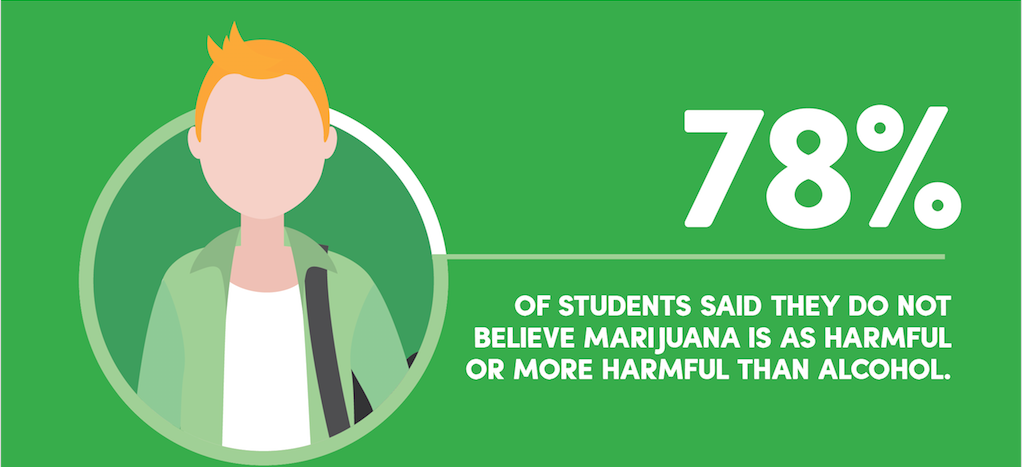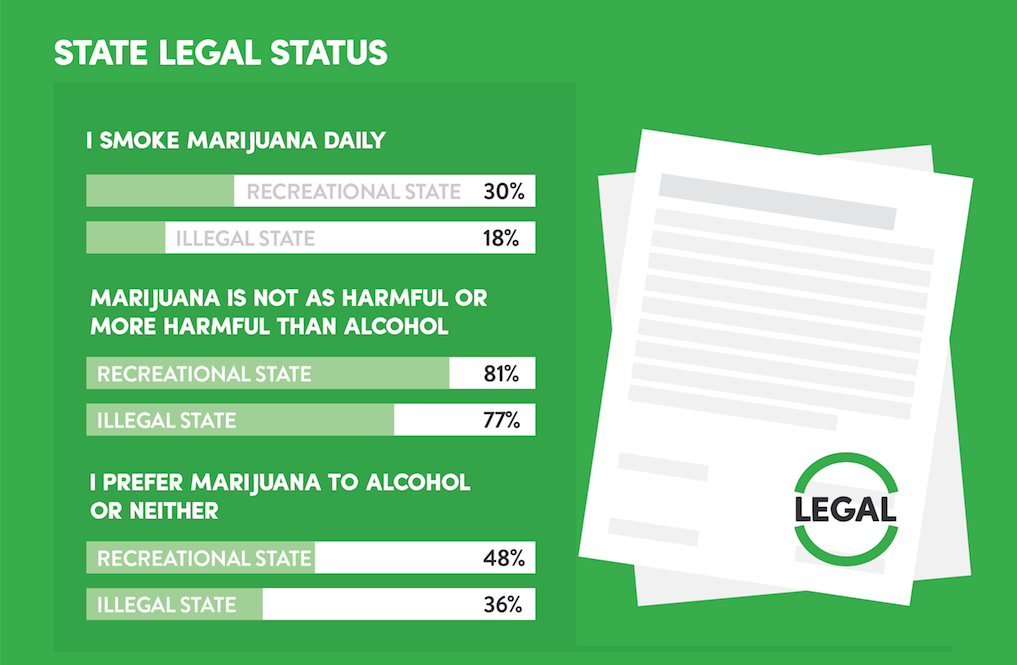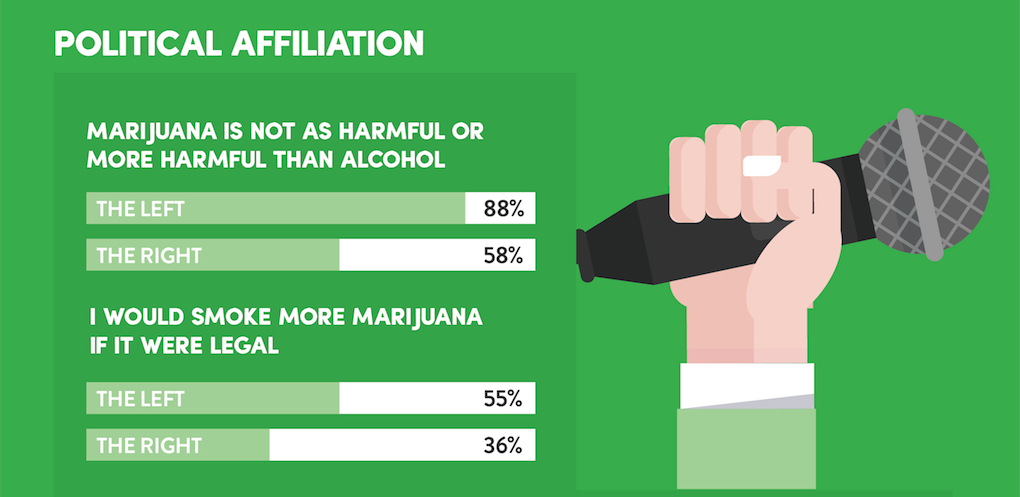Marijuana Opinions On Campus
For decades marijuana usage has been demonized and stigmatized in American culture. From Reefer Madness in the 1930’s to Richard Nixon and his famous War on Drugs to current Attorney General Jeff Sessions insistence that “good people do not smoke marijuana,” pot usage has long been snubbed by mainstream society.
Popular culture has always made one thing clear: college is for drinking. Animal House. Old School. It’s not hard to conjure up images from movies of the booze-fueled romp the typical college experience is supposed to be like. But has the increased scrutiny of fraternity hazing and increased awareness of alcohol’s potential issues on campus began to kill booze’s buzz? If students are beginning to turn away from alcohol, where are they turning?
It looks like it could be marijuana.
What’s becoming clear is that popular opinion of the divisive plant among young people across the country is changing. In a culture that has long glamorized alcohol use as the only acceptable drug use students are admitting: maybe marijuana is not that bad after all.
We surveyed over 3,000 college students from around the country to find out their views on marijuana. The findings might surprise you.
Alcohol vs Marijuana: Which Is More Harmful?
Nationally, the concern about alcohol seems to be growing, while concerns about marijuana are dissipating. Across the country, 78% of students said they did not feel that marijuana was more harmful or even as harmful as alcohol. The National Institute on Alcohol and Alcohol Abuse reports that 88k people die every year from alcohol-related causes each year – the third highest cause of death nationwide – and a number of alcohol-related incidents received major media coverage in the past couple years.
78% of students said they did not feel that marijuana was more harmful or as harmful as alcohol.
Does Legalization Affect Usage?
Recreational marijuana legality seems to have had an impact on how frequently marijuana is used. Students in states where recreational marijuana is legal were almost as likely to smoke marijuana every day as they were to never smoke marijuana. 30% reported daily use compared to 37% reporting that they never use. Additionally, 48% of students in states where marijuana is recreationally legal preferred marijuana to either alcohol or neither, whereas 42% students in states without medical or recreational marijuana preferred alcohol to marijuana or neither. In states where weed is legal, it appears to be replacing alcohol as the vice of choice for college students.
In fact, we saw that 72% of students who said they use marijuana between once a week and once a year in states where it is prohibited said they would use it more often if it were legal.
30% of marijuana users surveyed in states where marijuana is legal reported using every day compared to 18% of users in states where it remains illegal.
Right vs Left: Partisan Marijuana Habits & Opinions
Traditional stereotypes did play out across demographic lines. Men tend to prefer weed to alcohol (46% to 35%), while women prefer alcohol to weed (35% to 42%). Students who identify their political ideology as “left” are much fonder of weed than those who identify their political ideology as “right”: 56% of liberals said they preferred weed to booze compared to only 36% of conservatives. In fact, 88% of students who identify themselves as “left” politically said marijuana was not more harmful or as harmful as alcohol, while only 58% of students who identified themselves as “right” politically felt the same way.
Clearly, the national conversation around marijuana is changing, at least on college campuses. Most students view marijuana as a less harmful alternative to alcohol, and increasing legal access is increasing students use. With this increased use comes an increased favoritism towards the plant.
Marijuana Is Not That Big of A Deal:
Fair Use
You’re welcome to share the images and data found on this page. Please attribute the authors by providing a link back to this page so readers can learn more about the project and related research.





